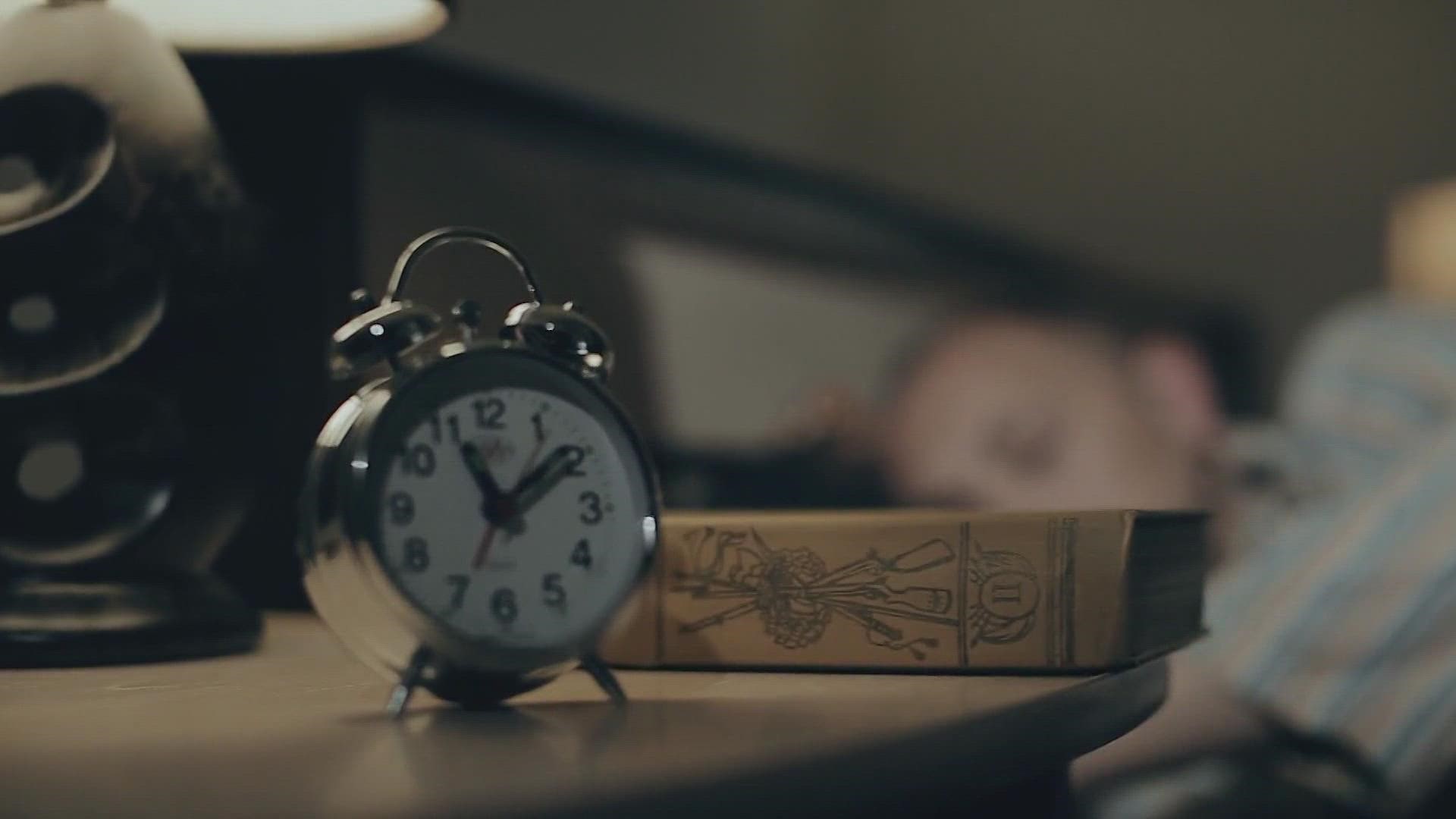SAN ANTONIO — Sleep. We all need it, but many of us don't get enough of it. The American Sleep Association says as many as one in five people suffer from a sleep disorder. That's why diagnosing it with a sleep study, which usually only takes one night, is so important.
"Sleep study help us diagnose many sleep-related breathing illnesses, sleep related movement disorders, insomnia, restless leg syndrome, sleep-related seizures and many more things," said Dr. Suhaib Haq who is a family physician and sleep medicine specialist with University Health.
He says sleep is a must to help our bodies relax, repair and replenish. Dr. Haq added, "Anybody who has poor sleep, any health condition that interferes with good continuity of sleep will end up waking up the next day tired and restful."
How much sleep is recommended?
Dr. Haq said, "Everybody's sleep requirement is different. But if we look at on average, seven hours or more is a good sleep amount for an adult person. Kids require a little bit more, especially from different age groups there are different requirements. But if somebody is aiming for seven hours or more, they're getting enough rest. Anything under four or five hours is not recommended."
There are four stages of sleep.
The first is Non-Rem 1, where you are falling asleep which lasts a few minutes. Non-Rem 2 is light sleep, and typically lasts about half an hour. Non-Rem 3 is slow wave sleep and is the deepest sleep state. The last stage, REM sleep, which is your primary dream stage. It is also where your brain becomes active, and your limb muscles temporarily paralyzed.
Dr. Haq said, "Without food, without sleep, a body cannot function. Poor sleep leads to being feeling tired for the day, unable to focus poor concentration, and that can lead to accidents. That can lead to poor work performance. On the back end, the poor sleep leads to increased risk for high blood pressure, increased risk for diabetes, depression and chronic pain."
In a sleep study, sleep apnea is often diagnosed. Dr. Haq added, "Our technicians may connect them to this CPAP or BiPAP machine to help them breathe and alleviate their sleep breathing disorder."
If you end up going to a sleep lab, Dr. Haq has recommendations to make sure your test is a positive one. He told us, "In order to have a good experience at the sleep lab, it's recommended that you try to avoid any nap before coming to the sleep lab, avoid any caffeine for a couple of days before you come to the sleep lab, try to bring your own pajamas and pillows or whatever makes you comfortable here, avoid any alcohol, and we usually don't recommend to take any sleeping medications. But if you are on medication that you need to take at nighttime, let your doctor and our staff know so we make sure those are appropriate."
And if a patient is concerned a sleep lab won't be the best environment for them to sleep comfortably, Dr. Haq says not to worry. "Our sleep labs provide an environment where you can have a comfortable sleep, although it's not as same as your regular bed. But our staff makes it make sure of it that you are comfortable."
For more information about sleep studies at University Health, you can call 210-644-3204.
For more Wear The Gown stories, click here.

